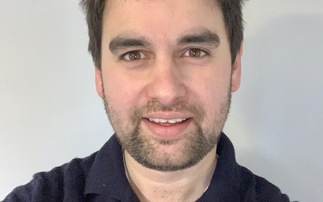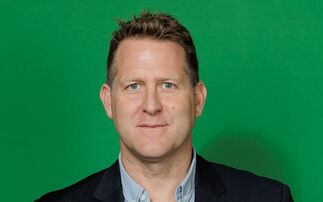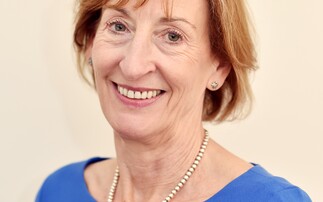Fiona Murphy discusses the creation of the OneFamily brand with its CEO Simon Markey and how he wants to create ‘a modern mutual'
One of the main things OneFamily chief executive Simon Markey is keen to stress is that he wants to create "a modern mutual".
To this end, Family Investments merged with Engage Mutual to form the rebranded OneFamily. Family Investments had specialised in child trust funds and junior ISAs while Engage Mutual was known for its over-50s plans. OneFamily is now the biggest mutual behind Royal London and LV=.
Markey was headhunted for the top job at Family Investments in 2012 and helmed the merger with Engage Mutual following a career mostly paved through retail banking for organisations.
Previously, he ran Lloyds' saving business and call centres. He said that he worked at Lloyds when banks were still "customer-centred and very much respected. I got increasingly disillusioned and left in 2005".
He then worked on M&A for other large firms, including Marsh, Lifestyle Services (part of Phones 4U) and NBNK, which acquired the 632 Verde branches from Lloyds.
He was headhunted for the role at Family Investments and took the role, saying: "I thought this is an interesting opportunity here and one where we can run the mutual model a bit differently."
What is your view of mutual and what was your involvement in implementing the role at Engage Mutual?
SM: The strategy to merge with Engage Mutual fitted as part of the direction of the business. The mutual sector is generally more trusted by consumers, but generally lacks the scale to make it efficient.
I looked at what was happening in financial services - the large institutions had been losing their way before 2008.
When 2008 happened, there was a huge amount of turmoil and trust in banks dropped. We did YouGov research this January and found that 38% of those polled had a mistrust of their banks compared to 6% saying that they mistrusted mutuals.
This supports why we believe it is an opportunity. The larger players pulled away from niche products to rebuild their own balance sheets. A lot of these products were ones that families used to rely on.
A good example would be first time buyer mortgages. With the banks withdrawing from such products, families were being put in more financial difficulty.
FM: What financial difficulties among families do you think are becoming particularly stark?
SM: Pension provision; long-term care costs are going up; student tuition fees are going up; and so on. At every point, pressure is being put on families.
The research we did showed that 68% of adults provide financial support to families. Some 48% support to day-to-day living costs. The really interesting one is that 21% of adults provide financial support to their kids and their parents - the sandwich generation is starting to emerge.
The conclusion from our work is that personal finance is family finance. In the absence of financial institutions being able to provide the solutions that customers want, families are turning to themselves.
Some areas of the industry do that well - an example would be Admiral Insurance's multi-car insurance policy. We identified four or five life stages where families come together to make decisions for financial needs and we already provide products that help some of that but not the whole lot.
The strategy is fulfilling some of what families need at those key life stages. To do it, we have ultimately got to create a modern mutual.
FM: You've spoken (for example, at the launch of OneFamily) about the term ‘modern mutual'. What exactly is a modern mutual and why do you think this term is so important?
SM: A modern mutual is an organisation that takes the best of mutual values and the focus on customers, and marries it together with the commerciality of private equity or a listed company. By doing those two things, we create a business that is both efficient and has compelling customer propositions.
First, you must have a really clear strategy (you have to know where you are going and how you are getting there). Secondly, you have to provide relevant products and services (things that people actually want to buy).
We also have to find a way to pass value back to members (most mutuals do not do that). We have 2½ million customer members and £7.5bn under management. If we were to pay a dividend to customers, that would be significant. We wanted to do something more meaningful.
We established The OneFamily Foundation before Engage's merger. It is driven by the members. We plan to spend £750,000 and next year £1m and up to £1.25m over the next five years.
You have to be a member and members have the opportunity two or three times a year to go onto the Foundation part of our website and apply for either personal grants or community grants.
We then go through a light-touch process to make sure what has been applied for is appropriate and see where the money is going. The list of good causes or cases for personal grants are put on the website and everybody votes. We have no influence over that, so we don't know what the outcome will be.
Personal grants can be for individuals who are financially disadvantaged and wanting to, say, have special glasses (for example, we would buy them the glasses). In terms of the community grants, schools tend to be more prevalent.
We gave £25,000 to Chadsgrove School [a special needs school in Worcestershire] to completely renovate their playground, which was not suitable for wheelchair access. The furniture that was in the playground was not right for them. It had somewhere in the region of 2,000 votes.
You can see where it touches the lives of families and not just our members. You can see where the money is going and what it means for those people.
It is more than just financial benefit, though - it is about giving something back to society and the community.
Another question [of how you create a modern mutual] is how do you pay for it?
You have to run an efficient organisation. Mutuals (particularly smaller ones) really do struggle. There were 151 financial mutuals in the UK when I last looked at the stats and 80% of the assets are invested in the top five.
You have some fairly chunky companies at the top of the ladder that should be run efficiently. But they have a really long tail and don't have the scale to generate sufficient levels of profitability to reinvest or keep ahead of the current regulatory environment, which is becoming more challenging and expensive to perform.
Part of our strategy was to create an organisation that was not just about having the relevant products but having scale. That's what merging with Engage Mutual was all about.
FM: Why did you decide to merge Family Investments and Engage Mutual?
SM: Engage Mutual and Family Investments were two similar organisations. Family was substantially bigger with 1.9m members; Engage had roughly half a million members. Family had £5bn assets under management, while Engage had £0.93bn.
You have different scales of organisation but similar issues they needed to deal with. Also, they had a similar approach to customer and member value.
The deal has been totally transformational for the organisation because the majority of the capital was retained in the organisation and the balance sheet of OneFamily is very strong.
This is a great place to be to expand your product range and it means you can get into a much broader set of products. It also means both organisations also cost less to run together than they did separately.
FM: Has anything been scrapped or changed in terms of products?
SM: We decided to have a combined product range. The over-50s plan from Engage Mutual is a really nice product that fits in with the family lifecycle, so we kept it.
We are selling more of it now than we ever have. We hit the £1m APE in the first quarter, and are committed to providing that and the broader range of productsthrough intermediaries.
We are looking to work, and develop relationships, with intermediaries. There have products we are looking to introduce during the first quarter of next year (one of which is Cancer Cover), but we need to go through a cycle of approvals internally and with the regulator.
However, we think we have something in differentiating this type of cover.
Exeter Family Friendly (now rebranded The Exeter) bought Engage Mutual's health book, which contained more than 28,000 policyholders in individual and corporate schemes. What lay behind the decision to sell this?
SM: We undertook a strategy review. We had five or six products we believed we could add long-term to the marketplace and do them better or differently to the market. Health did not fit into that list and we were actively selling, but knew that was where we didn't want it to be.
The Exeter is a specialist in this area and we believe the members will be well served by The Exeter.










